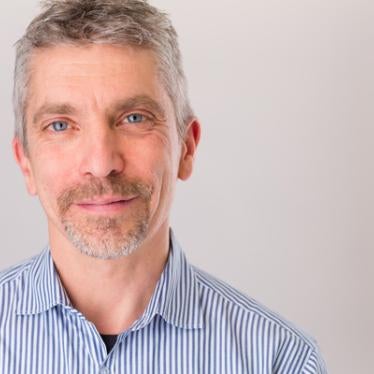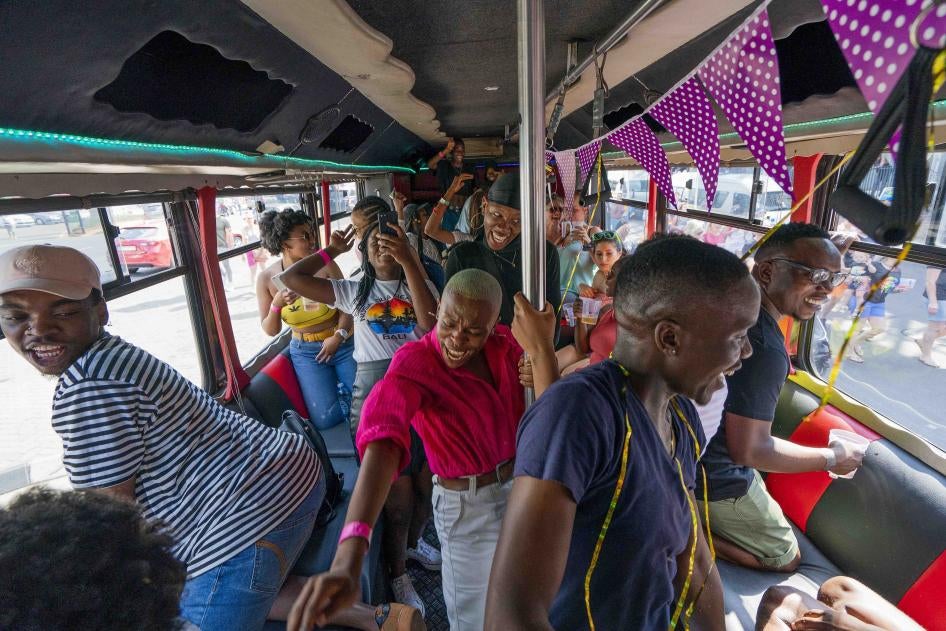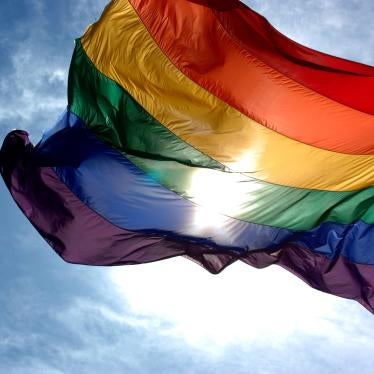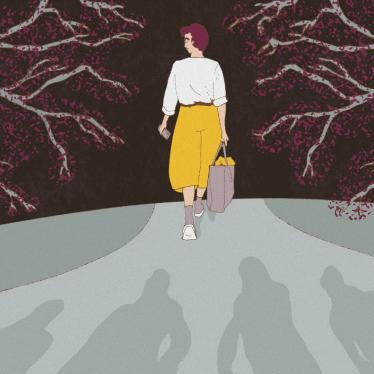June marks the anniversary of the 1969 Stonewall riots over the treatment of LGBT people by New York City police, which was commemorated a year later with a protest march. In countries where it is possible, pride marches and parades are now ubiquitous, including in South Africa, which held its first in 1990.
Pride month is a time to reflect on progress but also ongoing challenges in advancing the rights of lesbian, gay, bisexual, and transgender (LGBT) people.
Many countries in Africa have poor reputations when it comes to LGBT rights. The anthropologist Zethu Matebeni has parodied this uniformly gloomy view in a piece entitled How Not to Write About Queer South Africa. But the same volume also highlights the ways in which sexual and gender minorities are marginalised by “African political, religious and traditional leaders”.
When it comes to the rights of sexual and gender minorities in Africa, the past year has been a mixed bag.
In the first half of 2021, instances of violence against LGBT people in Senegal were reported by rights groups there, while police in Kenya came under pressure to properly investigate the brutal murder of a non-binary lesbian in Karatina, north of Nairobi.
South Africa, notwithstanding strong legal protections, continues to battle violence directed against LGBT people. In 2021, at least 24 people were reportedly murdered in bias-motivated attacks. The Ministry of Justice is revising its policy and approach to combating systemic gender-based violence in the country.
Of the 69 countries that criminalize same-sex relations, 33 are in Africa. In most cases, these laws are remnants of colonial rule, and the vague wording of these prohibitions, such as “carnal knowledge against the order of nature” resonate with the decorum of that era. Although the examples are few, there has been some progress over the last year on the protection of LGBT rights in Africa.
In November, the Botswana Court of Appeal upheld a lower court decision to decriminalise consensual same-sex conduct. The court found that the Penal Code provisions outlawing “carnal knowledge of any person against the order of nature” were unconstitutional as they violate the right to privacy, the right to liberty, security of person, and equal protection under the law, and the right to freedom from discrimination. Judges on the Botswana high court had in 2019 said that these archaic laws belong “in the museum or the archives”.
Angola’s new penal code, revised from 1886, came into effect in January 2021 and no longer criminalises same-sex conduct. The law has a non-discrimination provision that includes ‘sexual orientation’ as a protected ground.
All former Portuguese colonies in Africa have now decriminalised same-sex conduct. Indeed, Cape Verde is a member of the UN LGBTI Core Group, a network of states seeking to advance the rights of LGBTI people within the UN. In 2020 Gabon abandoned its brief experiment with criminalising same-sex conduct when its parliament reversed a 2019 law that had criminalised same-sex conduct for the first time.
But legal opposition and challenges to these archaic laws are increasing, if not always successfully.
In 2019, Kenya’s high court upheld that country’s sodomy laws, arguing that they were not discriminatory as the laws applied to everyone, regardless of sexual orientation. Activists have appealed the decision, but no court date has been set.
In Mauritius, three cases are challenging the constitutionality of a law that punishes consensual same-sex conduct with up to five years in prison. At the same time, Mauritius’ Equal Opportunities Act 2008 protects against discrimination based on sexual orientation, including in employment, education, and accommodation.
While many countries with colonial-era sodomy laws do not actively enforce them, or do so only rarely, Cameroon actively enforces section 347 of its penal code, which punishes “sexual relations between persons of the same sex”, with up to five years in prison. At least 27 people were arrested in Cameroon in the first quarter of 2021, and in a similar period this year, at least 11 victims of mob violence were themselves detained for alleged consensual same-sex conduct and gender non-conformity. In May 2021, two transgender women received prison sentences of five years each under the law that forbids same-sex relations.
In February 2021, Tunisian security forces targeted activists working on issues related to sexual orientation and gender identity at protests, through arbitrary arrest, physical assault, and threats.
Egypt continues to arrest, detain, and torture LGBT people, as noted in a joint statement delivered in March 2021 on behalf of 32 countries at the UN Human Rights Council condemning Egypt’s human rights record. Last July, five men accused of homosexual conduct were arrested in Kano State, Nigeria by a religious police unit that enforces Sharia, or Islamic law.
In 2016 Ghana showed signs of tolerance when its ambassador to the UN, Sammie Pesky Eddico, affirmed at the UN Human Rights Council in Geneva that “Ghana’s Constitution prohibits discrimination of all kinds” and he did not oppose the appointment of the independent expert on sexual orientation and gender identity. In Accra, Ghana’s capital, some police were trained to interact sensitively with LGBT people and the human rights commission instituted a reporting mechanism that allowed LGBT people to report abuse and discrimination without revealing their identities.
But this informal truce was broken in 2021. In February, religious and political leaders forced an LGBT centre to close in Accra. Then in May, police arrested 21 people attending a human rights workshop in Ho city, Volta region. And in August, lawmakers proposed a bill (still under review) so extreme that simply saying you are gay or lesbian could land you in mandatory conversion therapy or prison for up to 10 years.
Same-sex conduct is not illegal in Rwanda, but authorities there rounded up and arbitrarily detained people regarded as socially undesirable, including over a dozen gay and transgender people, sex workers, street children, and others in the months before a planned June 2021 Commonwealth Heads of Government Meeting.
Freedoms of expression and association have been tested during the past year. Despite decriminalising same-sex relationships in 2015, Mozambique has still not allowed a prominent LGBT rights group, Lambda, to officially register as a non-governmental group. In neighbouring Eswatini, the high court asserted that LGBT people, like anyone else, had rights to freedom of association and expression but nevertheless upheld a decision to deny the registration request of Eswatini Sexual and Gender Minorities, a local LGBT rights group.
Freedom of expression was curtailed in Kenya when the Film Classification Board banned the documentary I am Samue’, on grounds that the film promoted same-sex marriage. The film follows a classic theme — the relationship between parents and their son, as he navigates a budding romance with another man in a rural setting. This ban came hot on the heels of the 2020 ban by the same board of the narrative film Rafiki, a love story about two young women whose fathers are political opponents. Rafiki was briefly unbanned and broadcast for a week in Kenya, to meet a requirement for it to be considered for an award at Cannes.
In recent years, as LGBT rights have advanced within the UN system, the African Group has acted with some uniformity in opposing these advances, including by leading the charge against the appointment of an independent expert on sexual orientation and gender identity. But this uniformity has given way to a more nuanced and varied approach. When opposition to the appointment of the independent expert reached fever pitch at the UN General Assembly in 2016, the South African representative, Ambassador Jerry Matjila delivered a passionate speech defending the expert’s mandate and reflecting on the anti-apartheid struggle: “After years of struggle our people black and white, straight and non-straight came together to bury discrimination once and for all.”
Cape Verde and Seychelles actively supported the mandate. In a sign that uniform opposition lagged, some African states abstained from voting at various points in the process, while others simply did not vote at all. South Africa also just recently joined the group of friends at the UN Human Rights Council supporting the renewal of the independent expert’s mandate.
However, within the African regional human rights system, the African Union used the pretext of objecting to the observer status granted to the Coalition of African Lesbians to limit the autonomy of the African Commission, berating the body for acting contrary to African values by recognising the lesbian group.
Pride events had been organised in Uganda since 2012, but in 2016, Ugandan police raided an LGBTI pride event and assaulted participants, and was cancelled in 2017, under threat of arrest. And when activists attempted to revive the tradition in 2019, they were again met with threats of arrest and violence and at the time decided it would not be safe to hold future events. Despite being denied registration, Rock of Hope, the LGBT group in Eswatini, has organised Pride events since 2018 in the face of considerable opposition. In 2021, Rwandan activists organised sporting and social events to mark pride for the first time. Others have turned to virtual events, such as the three-day event Pride Afrique, organised by a Nigerian storyteller, Kehinde Bademosi.
Leaders in Ghana, Uganda, Nigeria and Tanzania have in recent years initiated vocal attacks against LGBT people. One way of looking at this is to recognise a pattern of stoking moral panics to detract attention from pressing social and economic problems and to defect political opposition. It is also true that it is a measure of the success of activists on the continent, who have increased visibility and raised awareness about LGBT issues. In this respect, the scale of opposition is also a testament to the resilience and tenacity of a growing social movement throughout Africa.










